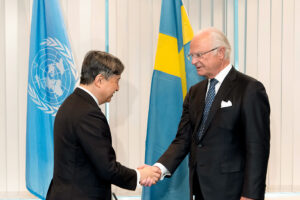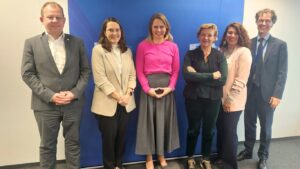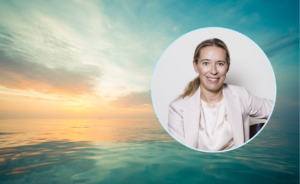A call for engagement in linking biodiversity with inclusive development to achieve the 2030 Agenda
This blog is written by Dr Jenny Grönwall Advisor – Water Policy & Rights, SIWI, and member of the World Water Week’s.

The ever-growing biodiversity loss that the world is experiencing should be high on everyone’s agenda in the run-up to the meeting on the UN Biodiversity Convention in Sharm El-Sheikh, Egypt, starting on 17 November. This year will mark 25 years since the Convention entered into force—but does so against the sobering recognition that ecosystems are collapsing and species face extinction in a way as dangerous as climate change.
One of the main messages to the world’s governments now concerns the urgent need to protect ecosystems that support food and water security and the very health of billions of people globally. The implementation of the Strategic Plan for Biodiversity 2011-2020 depends on national action plans to be put in motion. But an equally important message is that about the role of collective action, including by indigenous and local communities, for mobilizing resources for achieving the Convention’s objectives. We can all contribute—and one way is by generating and validating information about the webs of life that we depend on. Acquisition of more and more solid data responds to the need for an accelerated understanding of increasingly stressed freshwater ecosystems. It is also important for tracking progress toward and monitoring implementation of the Sustainable Development Goals (SDGs) in Agenda 2030.
One of the scientific seminars taking place at the World Water Week 2019—Linking biodiversity with inclusive development to achieve the 2030 Agenda—focuses specifically on this, among other things to enable better understanding of complex systems such as environmental flows.
We know that local ecological knowledge and practices are vital, and that by engaging the public the water community can build better baseline data on the state of the environment. As one example, SDG target 6.6 says that by 2020, we must protect and restore water-related ecosystems, including mountains, forests, wetlands, rivers, aquifers and lakes. One way to this end is through citizen science initiatives. These can take many forms: through crowd-sourcing of data (such as by sampling the water quality in a lake); ground-truthing (verification of data that has been provided, for instance the water flow in a stream); and participatory monitoring (for example to collect data on endangered freshwater species and their habitats).
The seminar is arranged by myself and Secretary General of the Swedish Society for Nature Conservation (SSNC), Karin Lexén, together with co-convenors IUCN, IWMI, Biome Environmental Trust, and the Stockholm Resilience Centre.
Are you working in this field and have a perspective that you feel the water community needs to hear? Submit your abstract to this, or any of the other 9 seminars at the World Water Week 2019. They form the scientific core of the Week and their content is connected to the thematic scope.
Submit here, by 20 January 2019.







